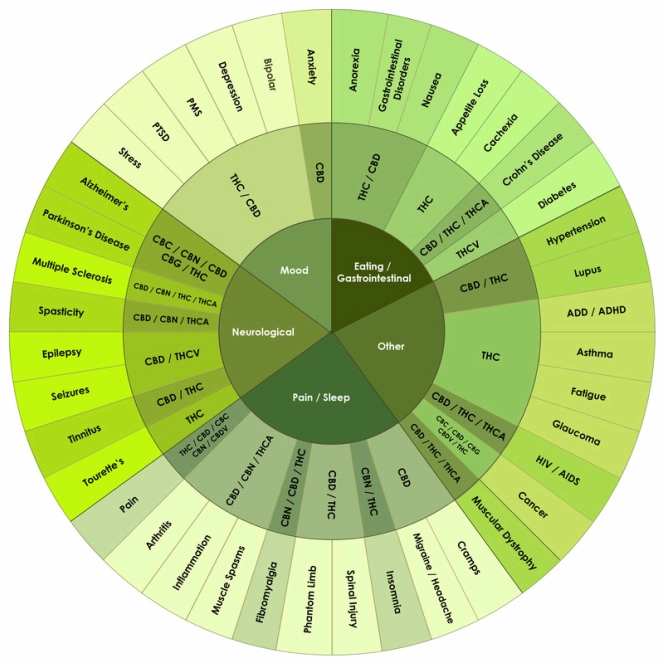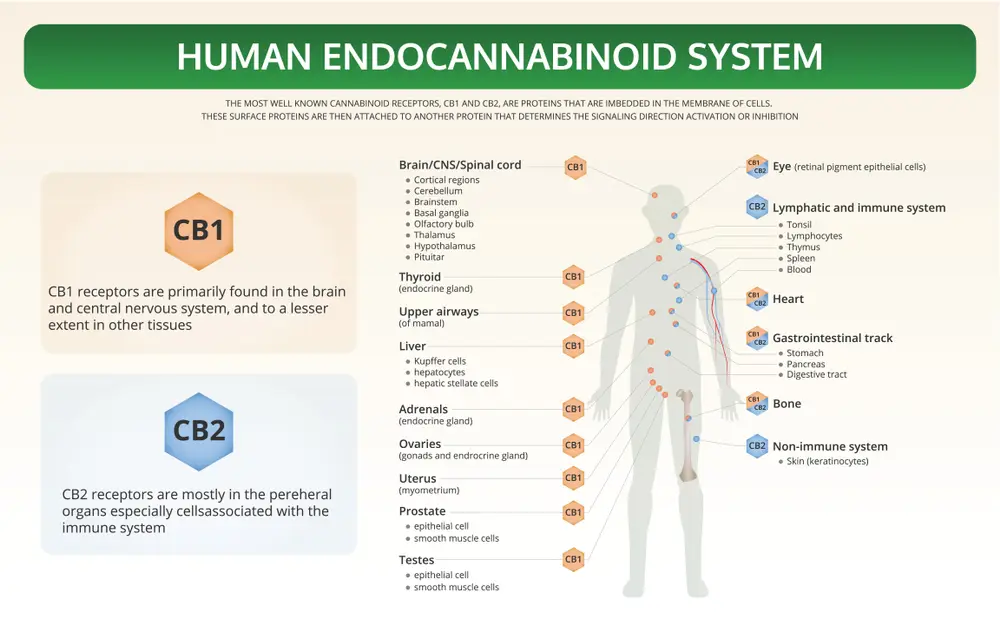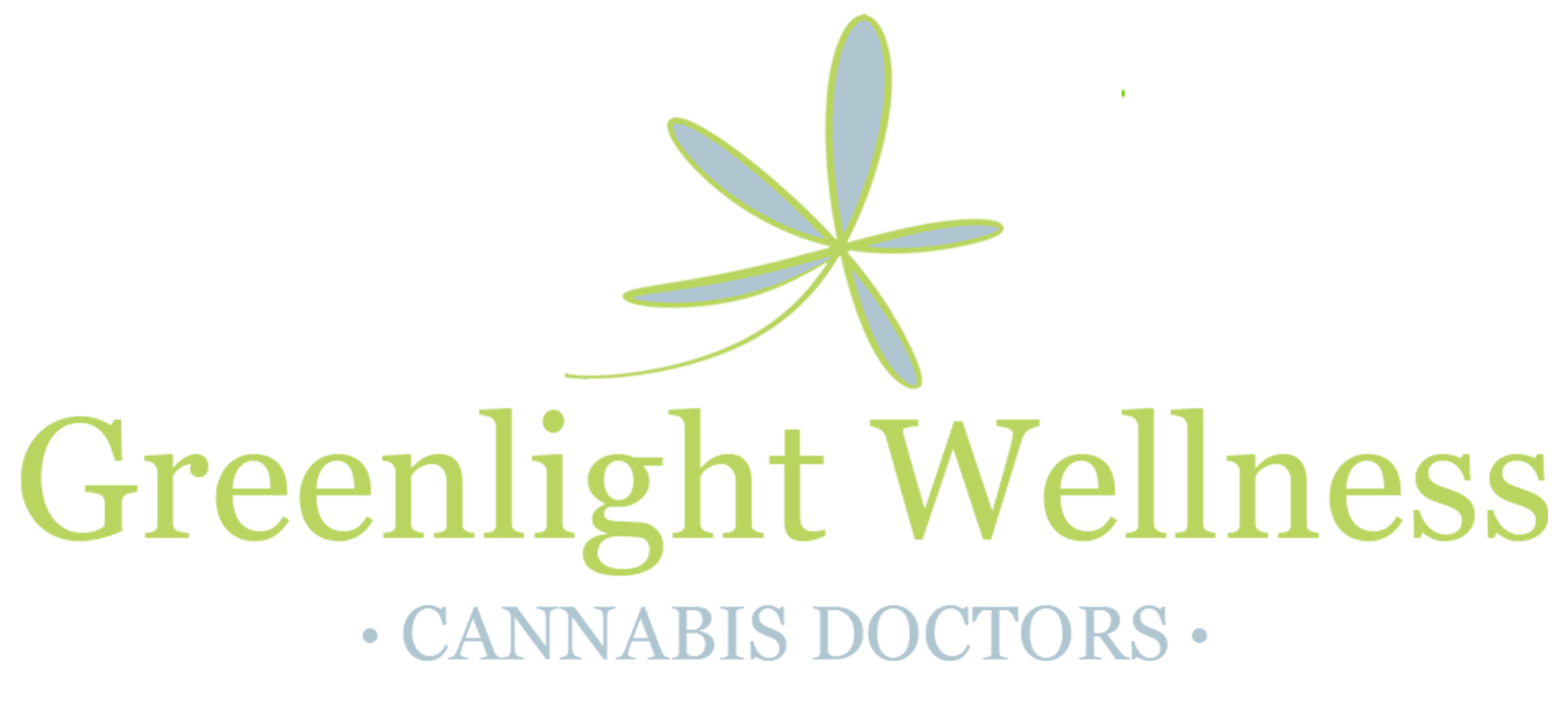THC and CBD
Cannabinoids - It's what makes it a Medicine
The cannabis plant is one of the most (if not the most) pharmacologically active plants on the planet, containing over 500 active chemical compounds and 140 identified cannabinoids, according to neuroscientist Yasmin Hurd Ward, the Coleman Chair of Translational Neuroscience and the director of the Addiction Institute at the Icahn School of Medicine at Mount Sinai, with THC and CBD being the most well-known. These two compounds differ but also have a lot in common, like their many therapeutic effects.
The unique active components of cannabis are called cannabinoids, which are found alongside active chemicals called terpenoids (aka terpenes) and flavonoids. The chemical components work together to provide various therapeutic benefits to the human body. Cannabis is medicine.
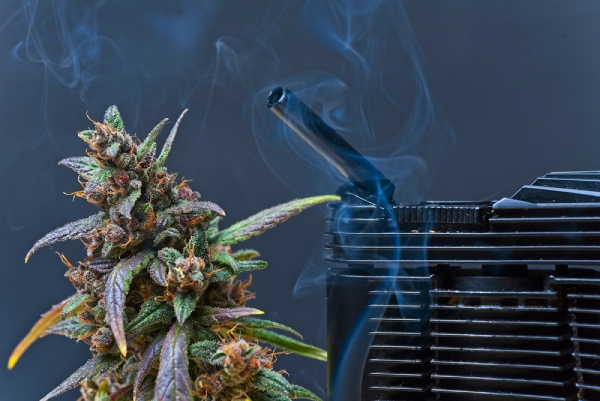
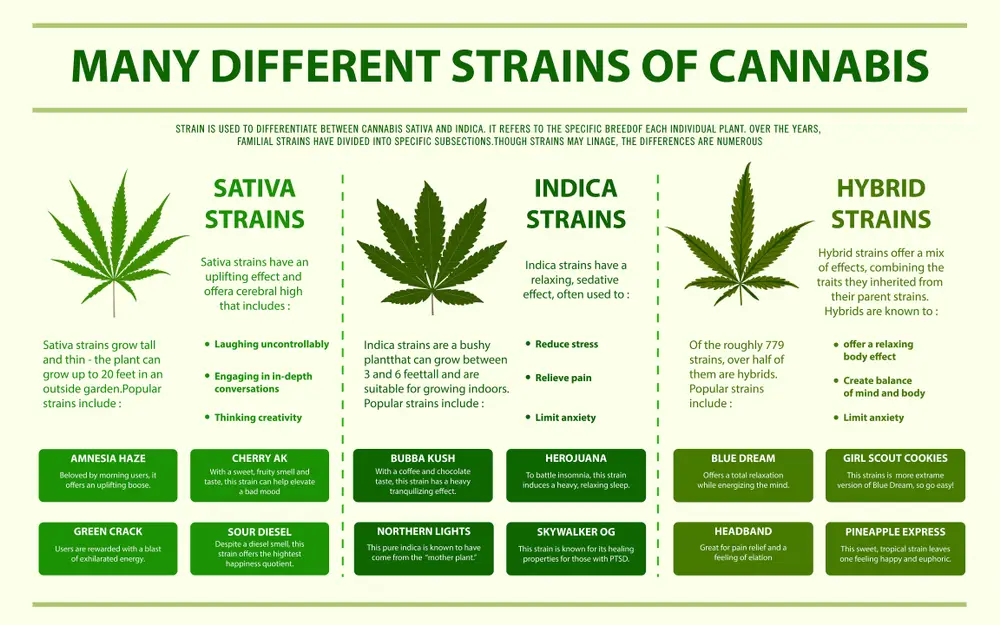
THC (tetrahydrocannabinol) and CBD (cannabidiol) plus a host of other minor cannabinoids are being explored by researchers currently. CBD and THC are very similar in molecular structure. They each have 21 carbon atoms and 30 hydrogen atoms. The main difference between CBD and THC is their source. The plant called hemp contains both psychoactive ingredients and more CBD content which comes in at around 10% on average while in order to be defined as hemp as defined in the Agriculture Improvement Act of 2018, the plant must contain less than .3% THC. Hemp plants contain both psychoactive ingredients, but only one of them can get you high when smoked or ingested in food form which means the other has may have significant medical benefits without making people feel “high.” For that reason, many marijuana doctors will recommend that patients consume CBD during the day for medical conditions like pain or anxiety and use THC-based products in the evening which can help them sleep better.
While THC is the cannabinoid that is typically associated with cannabis’ psychoactive effects, CBD offers a range of medical benefits and has long been considered to be non-psychoactive but is it really non-psychoactive?
Let’s explore the definition of psychoactive which is a substance or drug that influences how the brain functions causing alterations in behavior, mood, feelings, awareness, and thoughts.
Most researchers agree CBD is nonintoxicating and non-euphoric but that is different from nonpsychoactive. Nonpsychoactive means that a substance doesn’t produce changes in perception or behaviors in the mind or thought process. Well if CBD can alter behaviors, mood, feelings, awareness, or thoughts then by definition isn’t it psychoactive? Take a drug like caffeine, for example. Because it affects mood and brain function it is considered psychoactive. According to John Hopkins University researchers, CBD is psychoactive and has “high drug effects.” In their research, women had higher drug effects compared to men.
More research is definitely necessary because it will have a significant impact on the future of the cannabis industry, more importantly, further research findings might even disrupt the $1.4+ trillion pharmaceutical industry.
More about cannabinoids
Cannabinoids are chemical compounds found in Cannabis plants. (marijuana and hemp). There are many cannabinoids, the most commonly studied and known are THC, (highly psychoactive) and CBD (non-psychoactive) according to many researchers. Our bodies have an endocannabinoid system. The two work together much like puzzle pieces. Simply put, when cannabinoids are ingested, they “connect” with the endocannabinoids naturally occurring in our bodies to create cellular harmony and stability.
The human body produces its own cannabinoids, which are natural chemicals that play a role in maintaining homeostasis or balance. Cannabinoids bind to receptors throughout the body, including in the brain, nervous system, immune system, and digestive system which means they help regulate a variety of functions in the body such as sleep, mood, pain perception, and inflammation.
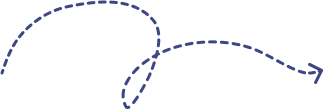
THC is the most commonly known as a cannabinoid and is responsible for getting one “high. It is also a powerful neuroprotective, and antioxidant and has 20X the anti-inflammatory power of aspirin and twice that of hydrocortisone (Russo, 2011).
CBD-rich cannabis provides potent therapeutic benefits without the euphoria or lethargy of many high-THC varieties. CBD and THC are believed to have synergistic effects meaning that when they are both present at therapeutic levels they are more effective together than they are alone. While THC is widely known for its psychoactive properties, CBD may be best known for its ability to counterbalance anxiety, tachycardia, hunger, and sedation caused by THC (Russo, 2011).
Difference between THCA/THC
THC (tetrahydrocannabinol) is the cannabinoid that is most associated with the plant’s psychoactive effects and is one of the cannabis plants’ 140 total cannabinoids identified. It binds to receptors in the brain and produces the “high” that is often associated with cannabis use. THC also has several potential medical uses, including relieving pain, reducing inflammation, and alleviating anxiety.
THCA (Tetrahydrocannabinolic acid) is a non-psychoactive cannabinoid that is found in raw or unripe cannabis plants. When cannabis plants are heated or dried, THCA converts into THC. This process is known as decarboxylation. THCA has a number of potential medical uses, including reducing inflammation and nausea and stimulating appetite.
Difference between CBDa/CBD
CBD and CBDA are both found in the cannabis plant. CBD is produced when cannabidiolic acid (CBDA) is decarboxylated or heated. This process can be done artificially or naturally when cannabis is dried, heated, or exposed to sunlight. Once CBDA is decarboxylated, it becomes CBD.
CBD is short for cannabidiol, while CBDA stands for cannabidiolic acid. Both of these compounds offer potential health benefits, but they are not the same.
Here’s what you need to know about the difference between CBD and CBDA
CBD and CBDA are two compounds found in the cannabis plant. CBD is short for cannabidiol, while CBDA stands for cannabidiolic acid. Both of these compounds offer potential health benefits, but they are not the same.
CBD has been shown to help relieve anxiety and improve sleep. It may also help reduce inflammation and pain perception. CBD is non-psychoactive, meaning it does not produce the “high” associated with cannabis use.
CBDA is a less well-known cannabinoid with potential therapeutic benefits. CBDA has been shown to inhibit the growth of cancer cells. It may also help reduce inflammation and nausea. Like CBD, CBDA is in dispute as to whether it is psychoactive or non-psychoactive.
To summarize the differences between CBD and CBDA, the two cannabinoids found in the cannabis plant are not the same compound. CBD is produced when CBDA is decarboxylated (heated). CBD and CBDA offer potential therapeutic benefits, but each has unique effects on the body. If you’re considering using cannabinoids for medicinal purposes, speak with an expert marijuana doctor to learn more about how these compounds might help you manage your symptoms.” If you are considering medical marijuana as a treatment, you must obtain a marijuana card.
Difference between CDBa/CBD, and THCA/THC
When cannabis grows, it produces CBDA and TCHA, (not CBD and THC. ) CBDA and TCHa are “inactive” acidic compounds. It is not until heated through smoking, vaporizing, cooking etc. that the molecule changes to an active form or decarboxylation and converts to THC or CBD. When you are in possesion of a valid MI MMJ card you ask the budtender at a dispensary what the right combination and potency of cannabinoids are best suited for your medical condition.
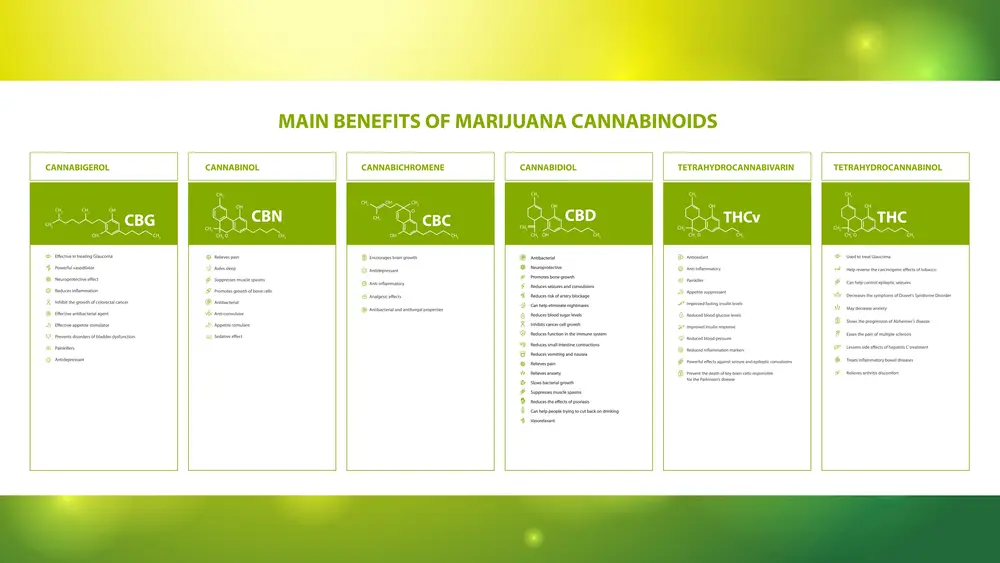
Refer to the wheel below to review the health benefits OF different cannabinoids
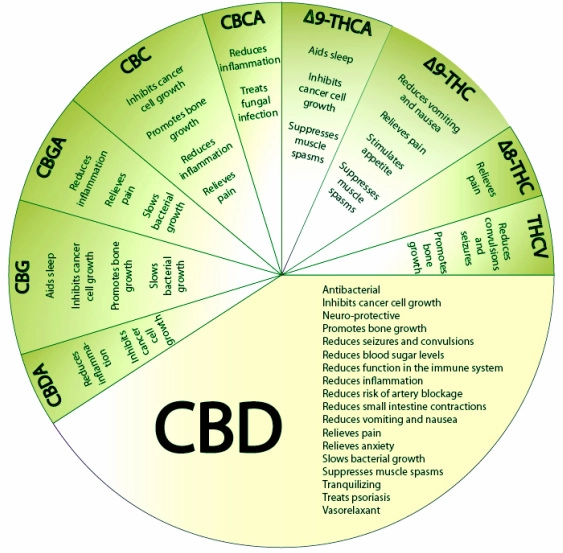
Refer to the wheel below to find which cannabinoids help with certain conditions
